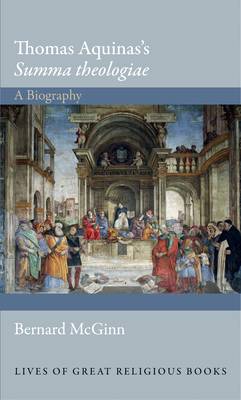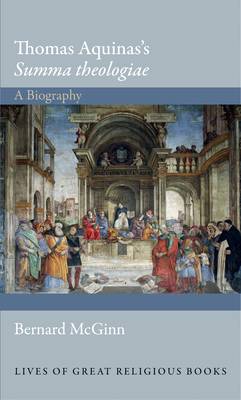
- Afhalen na 1 uur in een winkel met voorraad
- Gratis thuislevering in België vanaf € 30
- Ruim aanbod met 7 miljoen producten
- Afhalen na 1 uur in een winkel met voorraad
- Gratis thuislevering in België vanaf € 30
- Ruim aanbod met 7 miljoen producten
Omschrijving
The life and times of the most important theological work of medieval Christendom
This concise book tells the story of the most important theological work of the Middle Ages, the vast Summa theologiae of Thomas Aquinas, which holds a unique place in Western religion and philosophy. Written between 1266 and 1273, the Summa was conceived by Aquinas as an instructional guide for teachers and novices and a compendium of all the approved teachings of the Catholic Church. It synthesizes an astonishing range of scholarship, covering hundreds of topics and containing more than a million and a half words--and was still unfinished at the time of Aquinas's death.
Here, Bernard McGinn, one of today's most acclaimed scholars of medieval Christianity, vividly describes the world that shaped Aquinas, then turns to the Dominican friar's life and career, examining Aquinas's reasons for writing his masterpiece, its subject matter, and the novel way he organized it. McGinn gives readers a brief tour of the Summa itself, and then discusses its reception over the past seven hundred years. He looks at the influence of the Summa on such giants of medieval Christendom as Meister Eckhart, its ridicule during the Enlightenment, the rise and fall of Neothomism in the nineteenth and twentieth centuries, the role of the Summa in the post-Vatican II church, and the book's enduring relevance today.
Tracing the remarkable life of this iconic work, McGinn's wide-ranging account provides insight into Aquinas's own understanding of the Summa as a communication of the theological wisdom that has been given to humanity in revelation.
Specificaties
Betrokkenen
- Auteur(s):
- Uitgeverij:
Inhoud
- Aantal bladzijden:
- 272
- Taal:
- Engels
- Reeks:
Eigenschappen
- Productcode (EAN):
- 9780691154268
- Verschijningsdatum:
- 25/05/2014
- Uitvoering:
- Hardcover
- Formaat:
- Genaaid
- Afmetingen:
- 123 mm x 202 mm
- Gewicht:
- 349 g

Alleen bij Standaard Boekhandel
Beoordelingen
We publiceren alleen reviews die voldoen aan de voorwaarden voor reviews. Bekijk onze voorwaarden voor reviews.











